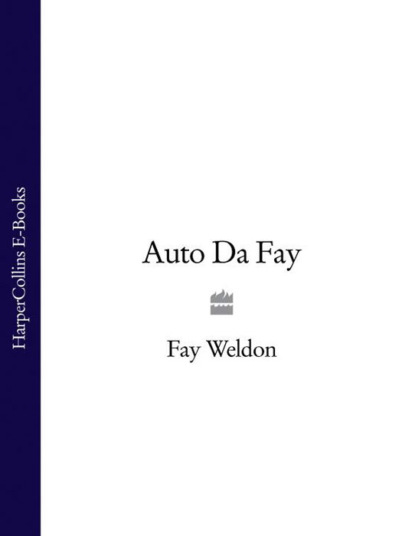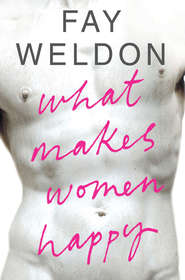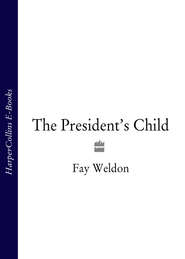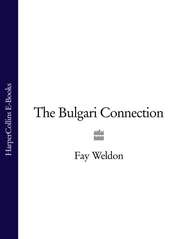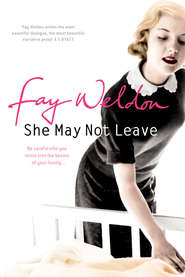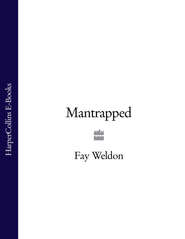По всем вопросам обращайтесь на: info@litportal.ru
(©) 2003-2024.
✖
Auto Da Fay
Настройки чтения
Размер шрифта
Высота строк
Поля
Franklin Fay (#ulink_5f8006da-b5c2-53cb-a636-4e2e8bc6cf11)
Before I was so much as named Edgar had drawn up my horoscope. I was never to meet him, other than for a few weeks when I was newly born. He was a Balliol man, a classicist, a collector of Chinese antiquities, something of a dandy, neat, small of build and a favourite of the ladies, as the euphemism went. Like many of the literati of the time, he was greatly interested in the occult; a fashion, or habit, or curse, kick-started by Annie Besant and the Theosophists, side-winding into the Cabbala and diabolism and ending with Aleister Crowley, Number 666, the Beast, with whom the movement expired from its own excesses.
Edgar was a good friend of Arthur Machen, writer of ‘stories of horror and evil’ and a member, with W. B. Yeats and Crowley, of the Order of the Golden Dawn, a secret society dedicated to cabalistic magic. I do not think Edgar was very serious about any of this. In his autobiography (Memories of a Victorian, written in 1933, and dedicated to ‘his wife’, by whom – poor Frieda! – he must mean Lois) he complains that ‘in these degenerate and sinister days few are at pains to learn how they stand with the stars’ but notes that he himself is pleased to be born under the sign of Libra – ‘for they have fine hair, and a beard less bristly to have than the beards of any of the other children of the universe, and write a more lucid prose’.
I was born at 5.30 in the afternoon, when the sun was just moving out of Virgo into Libra, and it was hoped I too would have the gift for lucid prose, though according to Edgar the position of the stars made this marginal. I certainly have fine hair, which has proved very difficult and costly over the years.
It was Arthur Machen who introduced my grandfather to the practice of astrology. Edgar taught my mother, my mother taught Jane, and Jane declined to teach me. But my mother had Teach Yourself Astrology on her shelves, in a bright yellow jacket, next to The Cloud of Unknowing and The Writings of St Teresa of Avila, and I have a clear vision of myself, at the age of twelve, sitting on the lawn of the Christchurch Girls’ High School on a sunny day, with an ephemeris of the planets’ places and some blank horoscope forms, successfully drawing up the chart of a school-friend. I did a handful of these for my classmates and then no more. They seemed to offer a fair enough representation of the temperament of my subjects but what was the point, since they themselves were sitting next to me? And casting horoscopes – or even reading palms, another party trick – left me with a strangely unpleasant feeling of remoteness and passivity: as if (a contemporary simile) one had taken too many painkillers in order to get rid of toothache, and one’s liver was affected. In other words I got to feel ‘spooked’ – a teenage word but the only one available – which is the normal punishment for dabbling in the occult, and a sure sign one should stop. I do not watch horror films on my own in the house. To acknowledge the devil is to bring him nearer; best to ignore him.
I read Machen’s novel The Hill of Dreams around that time, and still carry in my mind its feeling-tone; and the description of the aura of evil which sweeps one evening over an English landscape which has a terrifying past of cruelty and massacre, centred on a Roman fort. That novel was published in 1907, a year later than Kipling’s collection of stories and poems, Puck of Pook’s Hill, very much on the same theme, but seeing evil and horror where Kipling saw good and the human capacity for renewal. I wish it had been the other way round: it is not right for evil to have the last word.
My sister Jane had a ‘blessing’ by Arthur Machen in a frame upon the wall until my mother took it down. She never liked it. The blessing, given to baby Jane on the occasion of her christening, consisted of a sheet of parchment, in the middle of which was a paragraph in tiny writing in a language and script no one recognized. I was probably fortunate I did not receive one too.
In my father’s absence my mother named me Franklin. The registrar wrote ‘boy’ in the ‘sex’ column, and then had to cross it out and write ‘girl’. I was to feel vaguely apologetic about this later; my parents had a girl already and would obviously want a boy and I had failed them. My mother – Mrs Bored of Barnt Green, no doubt – had been studying numerology, a way of divining the future through the relationship of names to numbers, while she waited for the birth. Franklin Birkinshaw, she discovered, ‘came out the same’ as William Shakespeare. My being born a girl had left her unprepared. But Franklin was a most auspicious name. And was not ‘lin’ the female diminutive, and was not Frank my father? Franklin still made perfect sense to her, and she hoped to others.
Alas, it did not, no doubt least of all to my father when she first showed him the new baby. It was going to be, he reckoned, citing the registrar as evidence, too confusing for others. They took in time to calling me Fay, I hope not after Fay Wray, the screaming heroine of so many horror films, but you never know. If it was, I grew up to be a sunny enough child, if only in defiance, though there were to be King Kongs enough in my life. I was left with the name Franklin on official documents, while being Fay at school. But it was Franklin only at the Christchurch Public Library. They would not recognize Fay, though I pleaded. I had to sign my full name, Franklin Birkinshaw, every time I took out a book, while the Beryls and the Dulcies, the Meryls and the Aprils, looked on askance, and the librarians shook their heads and took pleasure in wondering aloud what kind of parents I must have. Thus I started out in a state of ambivalence. I took out library books as Franklin and read them as Fay.
Names are important. I was only to become a writer when I added Weldon to the Fay. Other names had intervened, leaving me stranded, if often entertained, and occasionally scared. But Weldon was the one which best suited. It lengthens with the years, of course. This morning I signed a document under the name Fay Franklin Weldon Fox. With every change of name comes a change in fortune. I never took to numerology, all the same. No change in fortune should be seen as magic, only as a function of altering views of the self. As babies, of course, we are helpless, dependent upon our mothers’ expectations, and in my case these were perhaps too high.
Edgar and Selwyn, father and brother, did not want Margaret to go back to New Zealand. It was too far away: the ends of the earth: things had not gone well for her there. If she went back to Frank, who was to say how she would ever afford to get home again? It was not as if her husband was particularly good at keeping even a roof over her head. They were quite right, of course. In March, 1938, shortly before he died, Edgar wrote a brief note to Frieda in California. He has moved house to spare himself the stairs. He gives his new address. ‘There is nothing else in the way of news,’ he writes. ‘Margaret seems stuck in New Zealand, and I wish she wasn’t…’ He hopes that Frieda’s giddiness has stopped. ‘Perhaps the spring will be helpful.’ And then – ‘I have sold some sword guards to a North American and I send you the cheque. You must buy a spring frock with it.’ He finishes, ‘With best love, E.’ It is a poignant letter. He would do better for her if only he could, one reads between the lines, and perhaps even still loves her, only Lois and her pregnancy came between. His obituary in the Telegraph, found yellowed between the pages of his second volume of autobiography, Memories of an Edwardian, reads ‘He was a distinctive craftsman of remarkable personality, whose many friends included practically all the literary men of any note during the past half-century.’ My mother cried when a letter came to us in Christchurch to say he had died, and Jane and I cried to keep her company, though we did not know what we had lost.
But my mother, back in 1931, was not to be dissuaded by family advice. It was her duty to go back to her husband; she had promised to go back and besides, she loved him. ‘You have no idea,’ she said to me once, ‘what fun your father was in the early days. What light he brought with him into a room.’
She had not given the new land a fair chance, she told Edgar and Selwyn. New Zealand was a better place to bring up children than foggy, smoky London. And besides, things had changed. Her father, old enough to be great-grandfather not father to a new baby, was with a woman not her mother. The good days were over. And as Margaret embarked on the liner which was to carry her back to her unchancy husband, with little Jane clutching her hand and myself at five weeks held against her, and appreciative porters buzzing around with her trunks and cases, she must have felt a certain relief. At least she would not have to stay around to witness the sorry state to which two generations of Free Love and the Life Force had brought her family. To see the shadow of itself which 120 Adelaide Road, once so full of wit, energy and creativity, music and laughter, had become.
The House That Once Was (#ulink_c304b902-1ca3-5db0-8b77-3d1a05cac82d)
Terrible things had happened at Adelaide Road in the past, of course they had. It was not in anyone’s nature to play safe – neither in the Jepsons’, nor the Holmeses’. Where there are angels there are devils as well, and sometimes they both take up residence in the one person. At one time Edgar had installed Lois in the house over the way, and Frieda had been summoned in the middle of the night to help her rival through a miscarriage. It would be a rare wife these days who would put up with such a thing, but wives were more helpless then, and besides, the doctrine of Free Love was offered by the bohemians of the time as an excuse for a great deal of hurtful activity.
It was in its name that my seventeen-year-old Aunt Faith was seduced by her mother’s brother, to the destruction of her life but with no apparent difference to his. Men are great theorists and when in full pursuit of ends which to them seem noble but are simply not, it’s an unwise woman who allows herself to be persuaded. Body blows can be dealt to family life, and a family seem to reel and recover, but not for long. The next soft tap can bring it tumbling down.
But while it stood how well it stood. Houses have heydays, just as people do, and that of 120 Adelaide Road ran for twenty years, from 1910 to 1930. In the good days Edgar would write in his study, Frieda play the piano, the nanny look after the three children, and the cook and maid who lived and worked in the basement in times of plenty, looked after everything else. There were literary parties to give and attend, nightclubs to go to, and the talk was of socialism, Free Love, eugenics, and Fabianism. The household income was erratic, and entirely dependent on the skill of Edgar’s pen. The carpets might stop at the first landing, yesterday’s cold rice pudding turn up in today’s soup (a habit of Frieda’s, my mother would complain) but there was comfort and conversation and good cheer. It was true that at one time Edgar tried to forbid talking at meals, following the example of Joseph Conard, but the attempt was doomed to failure. ‘Joseph Conard was a very bad-tempered man,’ said Frieda, ‘and hated his children. He said it was they who had driven him mad. Edgar could be moody and difficult, but at least he liked his children, and when it came to it, liked to hear what they had to say.’
There were twelve bedrooms in the house and the children could take their pick of them. All were unheated, all contained a bed, a rug, a mirror and a wardrobe and that was all, so it made very little difference which one they chose. They moved on every night, trying not to hurt the feelings of particular rooms by leaving them out.
During the four years of World War I, from 1914 to 1918, Londoners went cold and hungry and were bombed by German Zeppelins and that was the end of the cook and the maid. They left to take up war-work, which was better paid than domestic service. ‘I am not surprised,’ my mother said. ‘They lived in and had one afternoon a week off and were at our beck and call night or day.’ Frieda took over the cleaning and cooking and Edgar’s life continued easily enough. He was able to write of that time, in his Memories of an Edwardian, published in 1937, that ‘the war was the chief thing in one’s mind but it made little change in the routine life of a civilian past the age of active service. Bacon and eggs came to my breakfast: beef or mutton to my dinner with quiet punctuality; I did my day’s writing; I went down to Central London to play bridge at the Omega, or poker at the Savage.’ But presently he and his friend the poet Walter de la Mare were seconded to work for the Ministry of Food. Walter was put in charge of sugar rationing and Edgar produced The Win the War Cookery Book and a notable advertising poster, carrying a picture of a loaf of bread and the simple slogan, ‘Eat less bread’.
Many years later I tried to persuade the Smirnoff client to run the slogan, ‘Vodka makes you drunker quicker’, but they wouldn’t go with it. Too simple and to the point, though research had shown that people choose vodka rather than other spirits because it does indeed make them drunker quicker. Advertising must be seen to work, but not at the expense of the dignity of the client. Effectiveness and profit come a long way down a client’s list of requirements.
In his Memories Edgar speaks of Frieda thus. ‘I fell desperately in love with a lady in London…she had a greater natural charm and a better figure than any other woman I ever met. When we met she had just finished her training for the concert stage and had given one concert in Paris…Her father was Henry Holmes, the only English violist who ever enjoyed a European reputation, and her mother was a daughter of William Gale, a Royal Academician so old he must have been a contemporary of Benjamin West. As a child she had been used to go to tea at Holman Hunt’s.’ In fact Frieda and her sister Sylvia had as young girls sat as models for the painter, having the strong, rather noble features and the plentiful hair the Pre-Raphaelites so admired.
I was not to meet my grandmother Frieda until 1941, when after her mother’s death at the age of ninety-nine, she travelled from California to New Zealand, to join Margaret and ‘help with the children’. At her own request she was known to us all as Nona, that being Italian for grandmother. And this is what I shall call her from now on, because this is how I think of her.
She too suffered many changes of name: born Frieda Holmes, she became Frieda Jepson on marriage: Susan Jepson at her children’s request (Frieda being too Northern and too bleak for her, according to Edgar), and then she became Nona, because she couldn’t bear – as many women can’t – to be addressed as ‘Granny’ by her descendants. I think she was happiest as Frieda Holmes. My mother was Margaret Jepson, and then Birkinshaw, and that was that. She had a clearer personality than Nona or myself.
The run-up from Holmes to Jepson, for my poor grandmother, and no doubt for my great-grandmother, Mary Francis Holmes, was troubled, indeed traumatic. Edgar puts it like this in his Memories of an Edwardian. ‘We had been engaged but a little while when her father grew tired of England. It irked him to be at loggerheads, owing to his advanced views, which were almost those of Shelley, but rather more erotically practical, with the Council of the Royal College of Music, in those days a very stuffy and hypocritical band. It was said of them that they pooled the female students. He betook himself therefore to the city of Berkeley in California, and became its Musical Dictator, and when he died the inhabitants set up his statue in one of their public places.’
Which was all very well for Henry Holmes. Men have one name and stick to it. They go their own way, not having to absorb others on the way. Henry Holmes and Havelock Ellis, the sexologist, had seen fit to circulate a pamphlet extolling the virtues of Free Love and the dangers of standing in the way of the Life Force, and had included the Archbishop of Canterbury in their circulation list. Unfortunately, the Archbishop actually read it. The ensuing scandal was such that Henry had lost his post at the Royal College, and was obliged to flee to California, dragging poor Mary Francis and her teenage twins, Herriot and Hjalmar, with him. Nona, at the time a young concert pianist in Paris, a pupil of Clara Schumann and with one concert already under her belt, smeared by the scandal, was offered no more work. She married Edgar instead. He had to persuade her. ‘She had a theory that we were happier as we were,’ he writes, ‘but I did persuade her.’ I fear she was easily persuaded. She no longer had a home and what alternative was there? So from the age of six to the age of ninety-six she played the piano for between six and eight hours every day, but seldom to an audience.
This was the first of the three great blows that the Life Force, that male conceit, was to deal Nona during the course of her life. The second was when her daughter Faith was discovered in love and in bed with her Uncle Hjalmar. Free Love was for the paterfamilias, on the whole, not for the rest of the family. The ensuing mayhem was to drive Faith into a mental home, where she died some fifteen years later. Edgar visited her weekly, but Nona went into a denial so profound that she blotted Faith, poor Faith, out of her consciousness entirely. When she was in her eighties, and I showed her a photograph of her three extraordinarily beautiful children, taken in about 1912, she could still see only two of them. And the third blow from the Life Force was when Edgar made Lois pregnant, and Nona was back to where she began, living with her mother.
It was hard for the family to see what Edgar saw in Lois. She was conventional and without any noticeable grace or talent, at least compared to Nona. She was a great complainer, about everything from her marriage, to the weather, to the state of her electric blanket. But perhaps her very difference from Nona was a relief to Edgar. She could look after herself. She made demands. ‘We never quarrelled,’ wrote Edgar of Nona, in 1937, by which time he was married to Lois, and their daughter Jennifer was six, ‘I do not believe that she could quarrel…When we were young we were always hard up, and she had but a poor time of it. She never complained, not once. Sometimes she would look wistfully at a frock or a hat in a shop window, or at a hansom when she was tired, and that wistfulness I do not forget.’ Perhaps that passage was written as a subtle reproach to Lois, as a suggestion that she mend her ways, and do as well in this respect as his first wife. Writers are not above sending coded messages to their spouses in their books.
In my teenage I went to the same school as Jennifer, but she was my aunt and the same age as me, though in a junior year, so it seemed prudent for us to ignore each other’s presence, and no one ever knew we were related. We both still live within a mile of Adelaide Road, and these days enjoy a cordial relationship.
Nona’s home collapsed when she was eighteen, thanks to her father Henry’s behaviour, and so, homeless, she married Edgar. Her daughter Margaret’s home collapsed when she was eighteen, thanks to her father Edgar’s behaviour, and so, homeless, she married Frank. My mother collapsed her own house the month I turned eighteen, and left me homeless, and had there been a suitor around I’m sure I would have married him, but there wasn’t. I just hung around for a couple of years, rendered myself pregnant and thereby drew my mother back to me, and Jane did the same.
I made a real effort to break the run of compulsive behaviour – doing unto others as you have been done – and desist from rendering my own children homeless just at the wrong moment, but did not altogether succeed. Jane did it to hers by dying. The Life Force, once it’s set going, runs through families for generations, and causes terrible havoc. ‘I blame Arthur Machen,’ said Nona to me one day. ‘He cast too many spells.’ But I daresay Freud could have produced a more rational answer, and Arthur Machen frightened himself by his own necromancy, my mother said, and though he never lost his allegiance to the Old Gods of his native Wales, concluded that they had lost their powers in the new world, and there was no point in dabbling.
My mother was not sent to school. That is to say when she was five they tried to take her and she refused. Her father came downstairs from his study wearing his silk dressing-gown and smoking a cigarette in an ivory holder, and said, ‘What can be the matter with little Margaret. She’s making such a noise!’
‘She won’t go to school,’ Nona said.
‘Do you not want to go to school?’ Edgar asked his daughter.
‘No,’ she replied.
‘Then don’t send her,’ he said and turned and went up the stairs again. And that was the end of my mother’s formal education, apart from a couple of terms at the Slade School of Art when she was fifteen. She told me she knew at the time it was a major life decision and she had chosen wrongly. Her failure to go to school made her over-respectful of authority, I think, and she never felt permitted to lie when she filled in a form, though brave enough in other respects, and she never learned to deal with what she didn’t like: all the important things one learns at school. They tried her again at the age of nine, but after a week of lessons she refused to go any more. She already knew everything they were trying to teach her.
Edgar’s account of it runs thus: ‘My daughter Margaret at the age of nine refused to go to school because it bored her, and it proved to be the wise course. Neither Susan or I [alas, for the poor forgotten Frieda, now subsumed into wife and mother ‘Susan’] could conceive of any reason why she should go to school, and we raised no objection to her staying away from it. I do not know whether she regrets it…but she writes better if gloomier novels than Selwyn or I, both of whom suffered seven years’ schooling apiece, and if you doubt my judgement, read her Via Panama.’
In the three weeks after my birth, after Margaret had succumbed and gone to stay at Adelaide Road with her father and her new stepmother, and before she took the ship back to my father, Edgar and she managed to write a book between them, Miss Amagee in Africa. ‘I shouldn’t have gone to stay with them,’ my mother said later. ‘It hurt Nona very much.’ But her own attitude to her mother was ambiguous. Her sister Faith had been betrayed by Nona, she sometimes hinted that Nona had been too fond of Frank: the clamour for emotional justice and the need to love battled it out.
Miss Amagee in Africa, of course, shows no sign of emotional stress: it is a stirring adventure tale about a brave American woman outfacing lions in Africa, written on the hoof, as it were, with wonderful descriptions of a landscape which neither writer had ever seen. I can only imagine that Lois was left to look after Jane and myself, and Jennifer too, while Edgar and Margaret worked. If so much was to get written in so short a time, someone had to look after the children.
And then it was time for Margaret to go home, though no one wanted her to go – except, I daresay, Lois. Frank was waiting impatiently for his wife and children to return. He had found a practice in the South Island, inland from Christchurch, at a township called Amberley, in the heart of the flat wheatlands of the Canterbury Plain. It was going to be all right, he assured her in his letter. He was starting a radio station. And he was standing for parliament as the socialist candidate.
Fay Franklin (#ulink_3c4d9bc1-87d0-516d-9f97-44e45ac0ce0b)
Of Amberley, I remember the hot wind blowing off the mountains, day after day, and a bare flat landscape, and a lot of sheep there was no escaping. I remember being dressed up as Little Miss Bo Peep for a fancy-dress party. I remember the creaking of the windmill which pumped our water, and the hot dust beneath the macrocarpa hedge which you had to wriggle through to get to play with the children next door. I remember the milk being warm when it came from the cow, and wishing it wasn’t. I remember the day I learned to read – I was three – and the way the letters suddenly made sense, and the excitement of that. I remember thinking now I could catch up with Jane but of course I never could. I remember my father coming home with a big new gold car, and how proud he was of it. It was a Voisin, imported from France; it had a starting handle and running boards on which we were allowed to stand. It was a magic car: I was sure it could fly, one day it would take off into the sky. But my father had a trick which I hated: he would stop the car in the middle of a dry river bed and tell us how we had to beware them, how people would camp the night in them, and be swept away in the darkness as the flood swept down from the melting mountain snows.
I was frightened, he knew I was frightened, why did he want to make it worse? Even today I still get panicky when driven through even the shallowest ford in the soft English countryside. ‘Can’t we go the long way round?’ I plead, but we never can. My experience of men in cars has always been that if you don’t want them to do something, they will. It is when they are behind a wheel that they most fear the control of women and children.
I remember my mother turning cartwheels on the lawn, white legs flashing, short skirt whirling, and being overwhelmed with admiration. None of my friends’ mothers turned cartwheels. They wore pinnies and made apple pies. We were different. I became aware that we were homies. We came from a far-off place called England, and didn’t really belong here. This made you both better and worse, before you even began. Sometimes people didn’t even understand what you said. Then you felt stupid. You wanted to speak like your friends, but your mother wanted you to speak as she did and was quite cross when you didn’t. You wanted to say ‘yiss’ but she wanted you to say ‘yes’. So you learned to speak two different languages, one for home, and the other for your friends. The picture books came from England, though, and showed children and their parents who were more like you than the other families around. You could read the stories to your friends and they liked that. People were like the pages of books. There were more and more of them, a page behind every page, and everyone with something new to say, and you never wanted it to stop.
In retrospect it is clear that my father took to life in the outback with enthusiasm, my mother decidedly less so. She had escaped the emotional stress of her family circumstances but at some cost, though at least there weren’t any earthquakes down here in the South. The earth stayed steady beneath her feet and my father and she did indeed have a radio station to play with, or at least several hours’ a week broadcasting time. My mother wrote radio plays, and even in these benighted parts found people enough to perform them, and an appreciative audience, and made friends: my father lectured on socialism and lost quite a few. New Zealand was an advanced country in social terms – first in the world with votes for women, first with an embryo national health service – and always, like my father, hungry for improvement, but actual socialism was viewed askance, particularly in rural areas.
My father was tireless and energetic: he wrote a detective serial for the local newspaper which went on for more than a hundred episodes. He wanted to stop but he couldn’t because he didn’t know who had done the murder. He was like a hotel guest who wants to leave but can’t because he has no money to pay the bill. The longer he stays the worse things get. In the end my father offered a five-pound prize for anyone who could solve the puzzle, and someone turned up who did. There is always a reader out there who knows better than the writer, and just as well.
In my father’s footsteps, I wrote a serial for a woman’s magazine in the Eighties: The Hearts and Lives of Men. It was meant to go on for twelve episodes but ran for forty-nine before the editor called enough, other writers wanted their space on the page back. I was happy to finish: I had already had to divorce and remarry my hero and heroine once so that the eventual ending would stay feasible. To do it again would be absurd. The serial was about a lost child, little Nell, who must in the end be reunited with her parents and bring them to their senses.
This endeavour went on for nearly a year. A courier would call at the door at one o’clock every Thursday to collect the latest instalment, which I had most likely written on the train that morning. In those days I lived in Somerset but had an office in London. I marvelled at how trusting the editor was: had there been a train strike, had I been ill, he would not have been able to collect his instalment. I think he had a vague idea that the story was already written and all I was doing was cutting it up into bits and handing it to him section by section, out of meanness. Even editors don’t seem to understand the make-it-up-as-you-go-along school of writing which I inhabit. But I am responsible in my own way: I couldn’t be ill or have a holiday for forty-nine weeks, and I wasn’t and didn’t. The episodes, restructured, were eventually published in novel form, and when it was I was quite pleased with it, though I missed the ‘story so far’ sections, which I had loved writing. As you move through a story it is interesting to see how your own view of it changes, and how you see fit to describe those who inhabit it. But the central premise of the story held, that like calls to like and most of us are given second chances, and that virtue is more often rewarded than we think.
Second Chances (#ulink_49c6b5dd-8749-5e2d-a573-2bdf394d7f3c)
New Zealand, for my father, was a second chance, and perhaps that was why he took to the new land with such joyful ease. Its very air suited him. He had contracted rheumatic fever in the trenches of World War I and nearly died from it. The smogs and fogs of London were no good for him. He had run away from home in 1914 to join the army, in response to Lord Kitchener’s pointing finger and ‘Your country needs you!’ He was sixteen but pretended to be eighteen. In those days it was possible to lie about your age: now we are all so closely monitored and registered it is near-impossible. Life is much duller as a consequence. One’s instinct is to hide from the state. I was always taken aback by the way schools asked to see my children’s birth certificates – supposing there was something there that I wanted them not to know? What business of theirs was my offspring’s parentage? Bad enough that school was compulsory – one could overlook that, because the children evidently so badly wanted to go – but what did they hope to find out? And where was I meant to find these bits of paper anyway, four or five years after the birth? As it happened I managed on all four occasions to fail to provide the required documentation, and no one ever followed up the initial request, but just assumed the children had the names and ages they said they had.
My father came from yeoman stock: his mother Isabel was a Garbutt, from a family who had farmed sheep in Northumbria for generations. His father Herbert was a Henderson on his mother’s side: the family had been ‘in wool’ for as long as anyone could remember, but had diversified into carpets, and were ‘in trade’ which was not quite the thing. The Garbutts, who now included bishops among their ranks, saw Isabel as a cut above Herbert. He was spoken of as a bully, and Isabel as a saint for putting up with him. And she was indeed the sweetest, gentlest thing. My half-sister Barbara takes after her, and her daughter Naomi, though sweetness seems to have by-passed the rest of us, become too diluted in the genes. On the one occasion I met Herbert, in 1946, he seemed perfectly pleasant and gave me half-a-crown so I will not add to the slurs.





